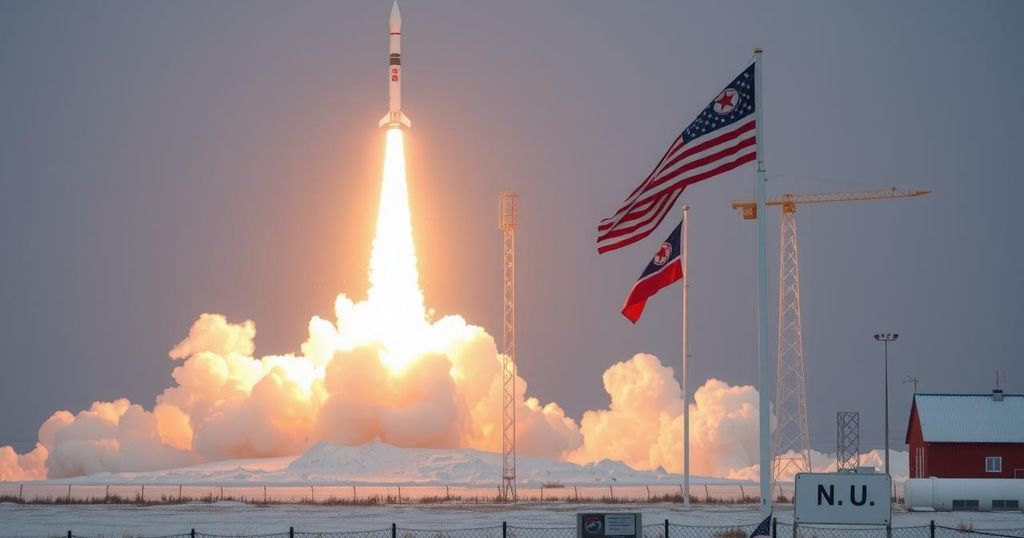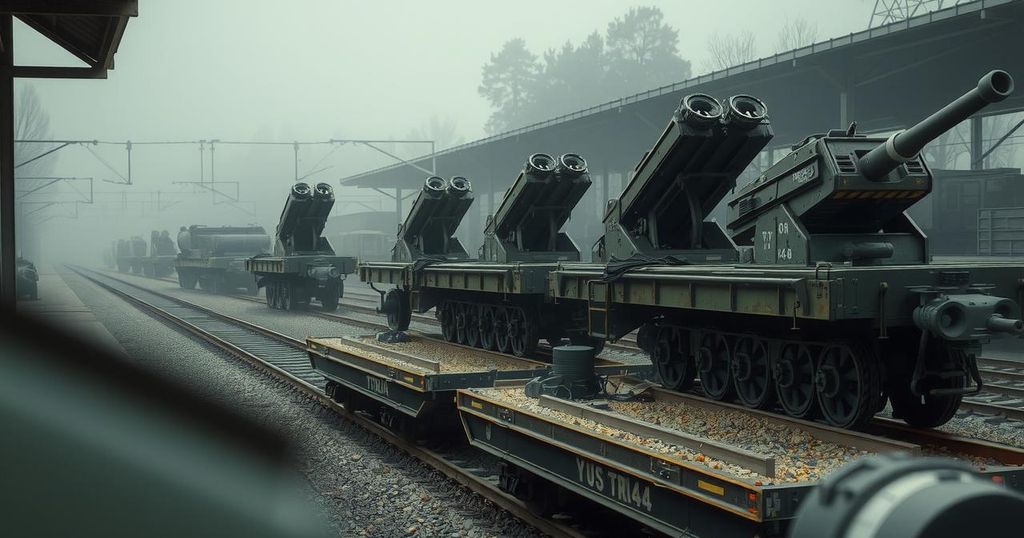North Korea Conducts Missile Test Following Trump’s Re-election
North Korea conducted its first ballistic missile test since President Trump’s re-election on Monday, reaffirming its military posture under Kim Jong Un. The launch followed criticism of the U.S., Japan, and South Korea’s alliance, with North Korea viewing them as a nuclear threat. Heightened tensions are further influenced by South Korea’s internal political challenges, including President Yoon’s martial law attempt, which elicited condemnation from the North.
On Monday, North Korea executed its first ballistic missile test since the re-election of President Trump, demonstrating that Supreme Leader Kim Jong Un remains steadfast in his approach to international relations. The missile launch follows a preceding test on November 5, coinciding with the American elections, indicating continuity in North Korea’s aggressive military stance. Kim’s regime has signalled no intention of fostering closer ties with the Trump administration compared to its prior interactions with President Biden.
This missile test occurred just over a week after the annual meeting of North Korea’s ruling party, during which leaders condemned the trilateral relations between the United States, Japan, and South Korea, labeling them as a “nuclear military bloc.” A statement from the Workers’ Party of Korea emphasized a commitment to advancing their strategic objectives in the face of perceived threats.
The backdrop of this controversy includes mounting geopolitical tensions, particularly in light of North Korea’s involvement in the ongoing conflict in Ukraine and its critical stance towards South Korea. Following a martial law attempt by South Korean President Yoon Suk-Yeol, Kim’s regime characterized the situation as indicative of South Korea’s internal strife. The North Korean state media described the legislative action against Yoon as a clear demonstration of systemic weakness within South Korea, which was linked to broader regional dynamics.
The relationship between North Korea, the United States, and its neighboring countries remains tense, particularly in the context of missile tests and military posturing. President Trump’s re-election has not altered North Korea’s aggressive stance, which indicates that the regime under Kim Jong Un intends to continue its nuclear ambitions while condemning external alliances formed against it. The situation is aggravated by South Korea’s recent political turbulence, including an unsuccessful martial law declaration by President Yoon that has drawn criticism and concern from both North Korea and international observers. This series of events underscores the fragile security landscape in East Asia, heightened by North Korea’s military actions and changing political dynamics within South Korea.
In summary, North Korea’s recent missile test serves as a clear signal of its ongoing military ambitions and unwillingness to engage diplomatically with the United States under the current administration. The developments highlight the escalating tensions in the region, exacerbated by South Korea’s political instability. North Korea’s rhetoric and military actions seem aimed at reinforcing its position and undermining regional alliances viewed as threats to its sovereignty and strategic interests.
Original Source: www.foxnews.com




Post Comment